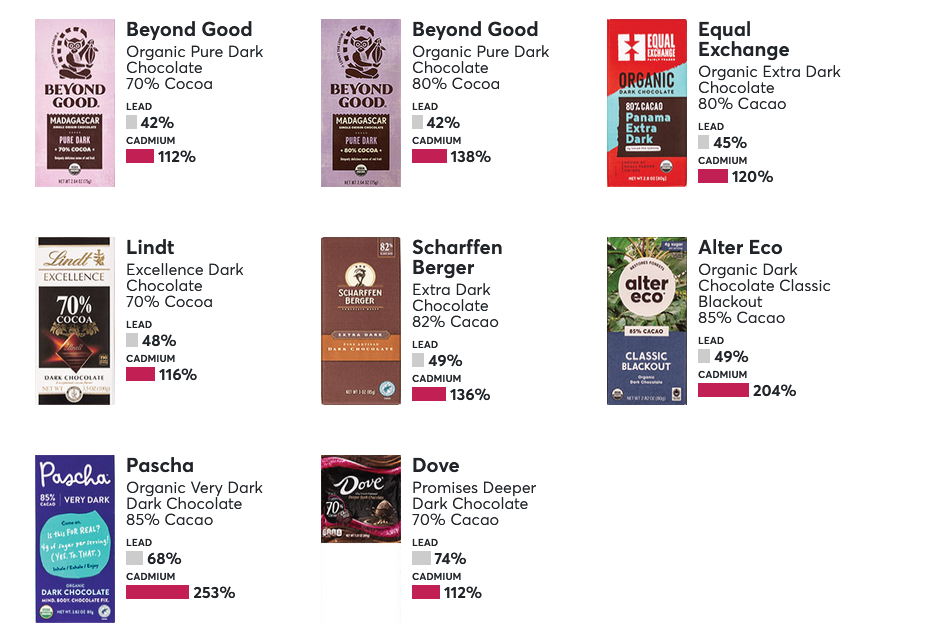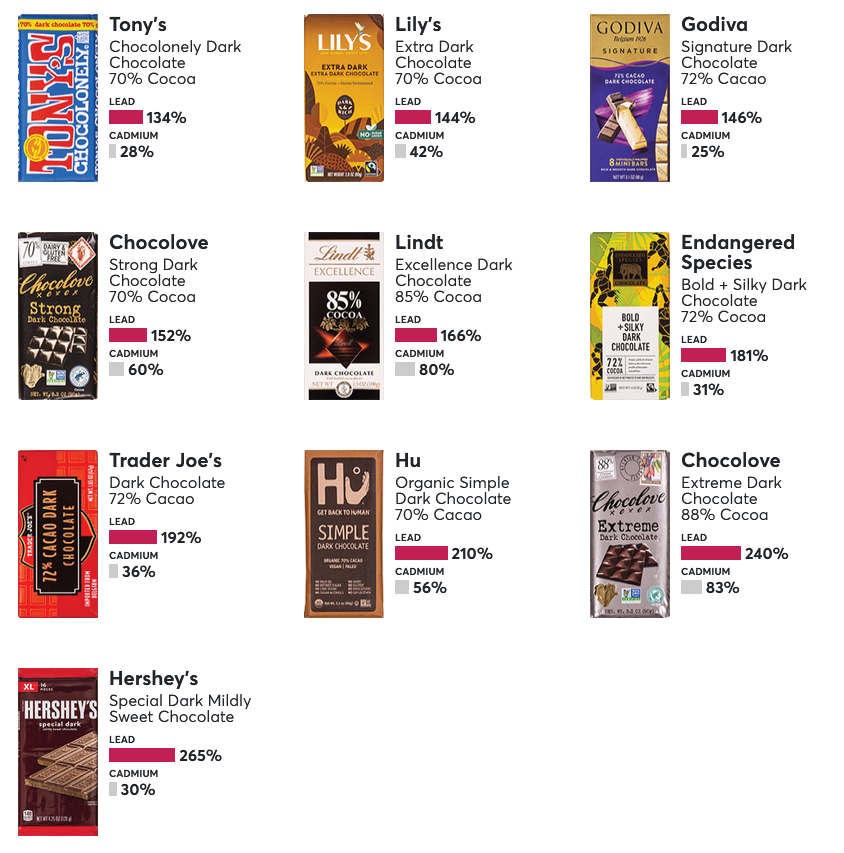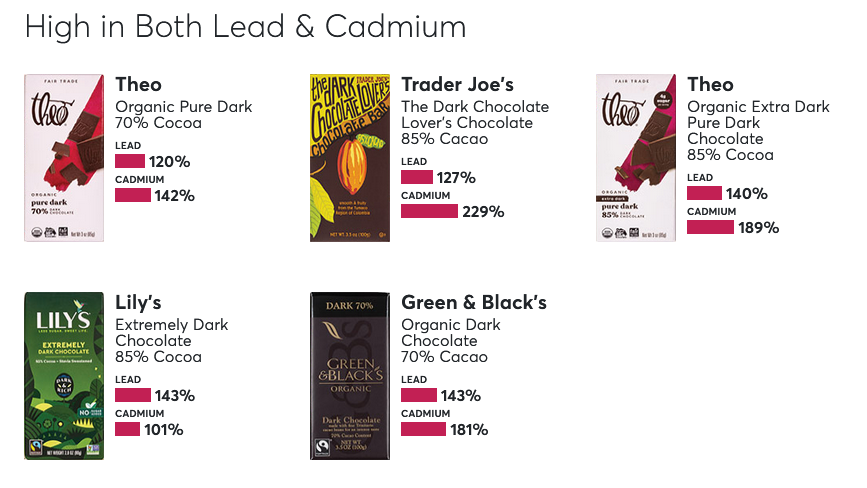According to a new Consumer Reports (CR) research, several popular kinds of dark chocolate have alarmingly high amounts of hazardous heavy metals.

The independent nonprofit organization tested 28 dark chocolate bars, including major brands like Hershey’s, Godiva, and Trader Joe’s, and discovered that all of them contained lead and cadmium.
Furthermore, CR discovered that for 23 of the bars, taking just one ounce per day — around the size of a little chocolate bar — was enough to put an adult over dangerous levels of those heavy metals. Chocolate is consumed on a daily basis by around 15% of the population. Combine that with the heavy metal exposure from other foods like your veggies, and you can easily accumulate dangerous levels in your body — even if you don’t eat chocolate very often.

This risk is especially high in pregnant women and children, for whom heavy metal exposure, particularly lead, can significantly impair development and cause long-term brain damage.
It’s not all doom and gloom, though. Five of the bars, while still containing heavy metals, had relatively low levels.

Question is why dark chocolate contains so many heavy metals in comparison to milk chocolate? It appears to be due to dark chocolate’s increased cacao content, which is the bean from which chocolate is manufactured.

According to a 2022 California Department of Public Health investigation on “cacao contamination,” it appears that lead is introduced into cacao beans after they are harvested and dried in the sun, during which lead-containing dust and dirt falls on the beans. Cadmium appears to be derived by cocoa plants from the soil itself.
So, do you have to give up dark chocolate forever? 🙁
Probably not, according to CR, but it recommends being aware of the hazards and considering “chocolate as a treat,” while choosing brands with the lowest amounts of heavy metals.
Reference- Consumer Reports, California Department of Public Health Study, Futurism, Nature Communications






